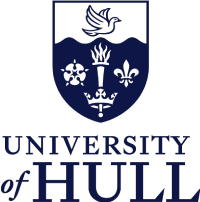About the Project
This project is one of three PhD scholarships exploring the consequences of modern slavery and will examine the recovery and (re)-integration processes for victims of modern slavery once they have exited the situation of exploitation.
You will focus on the long-term trajectories of victims, working in partnership with stakeholders to trace how victims ‘move on’ with their lives under different circumstances (confirmation or not of victim status; staying in the UK or being deported to country of origin; recurrent experiences of exploitation, etc.).
The study foregrounds questions of victims’ dignity and rights within theoretically informed and academically grounded research.
For further information contact the cluster lead: Dr Judith Spicksley ([Email Address Removed]).
More about this research team
You will be part of a team of researchers exploring critical questions of victimology in modern slavery studies. The team aims to investigate critically the problems experienced by those living with the consequences of modern slavery, whether directly as victim of exploitation, or indirectly as victims of the measures put in place to prevent it.
This team of researchers focuses attention on the pitfalls of intervention as well as the benefits. There are two strands. Currently there is much emphasis on identifying those affected by modern forms of slavery through raids and rescue operations, known as the carceral approach (Bernstein, 2012). The attribution of victim status and hence their access to support, protection and justice, is entirely dependent on a series of bureaucratic processes known for their inaccuracy and bias in decision-making (ATMG, 2010; Arocha, 2013).
At the same time, it is clear that there are significant gaps in our knowledge about what it is that allows differential access to justice: while some victims have been able to secure a successful outcome, many others have not.
The first strand of these scholarships has two elements, being concerned on the one hand with an investigation of the experience of those victims as witnesses in the court process, and on the other with the ongoing experiences of victims in the medium to long-term as they move on with their lives.
The second strand examines the experience of those prevented from exercising their human rights because of restrictions placed on them by measures put in place, both locally and internationally, to prevent the emergence of modern slavery. Together these three scholarships will allow us to understand the mechanisms and impact of three decades of policies and interventions aimed at eradicating modern slavery, and provide a blueprint for improving the lives of those who have had to live through this.
The Wilberforce Institute brings together experts in humanities, law and social sciences to help tackle this global problem head on. Through our research and practice, we give leaders and communities the tools they need to help shape a better future.
We actively partner with governments, NGOs, communities, businesses and other organisations to inform policy, practice and public participation at a local, national and international level.
Entry requirements
Applicants should have a 1st class undergraduate degree and Masters level qualification in Sociology, Anthropology, Criminology, Human Geography, Law or any other cognate discipline, together with relevant research experience. A 2:1 may be considered, if combined with relevant experience.
Successful applicants will be informed of the award as soon as possible and by 16 March 2020 at the latest.
Studentships will start on 21 September 2020.
Funding Notes
This is a funded scholarship over a three year period for full-time study. The funding you receive will cover the fees for your PhD programme and also an annual maintenance grant at the level of UKRI (£15,009 in 2019/20).
There is an optional writing up period if you need to complete your thesis after the three year period of your research degree, for which there is a small charge. Your maintenance grant will not cover you during this optional writing up period.

 Continue with Facebook
Continue with Facebook

